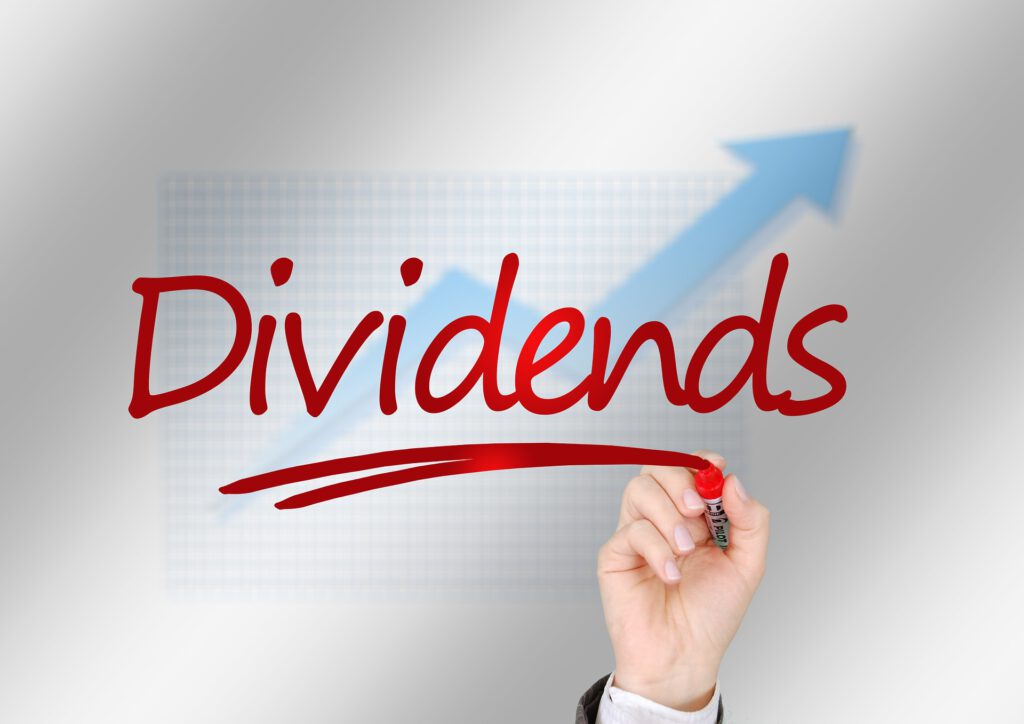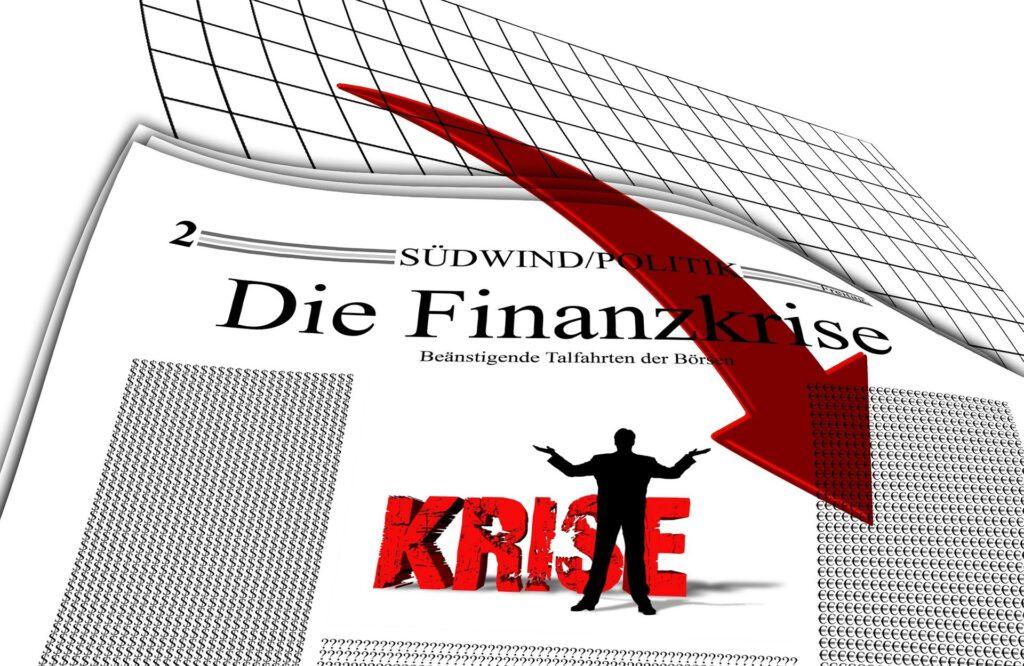
KGV, KBV, KUV – Der Kennzahlenwahnsinn
Inhalt Puh, Börse ist doch nicht „e wie einfach“ Das KGV, KBV, KUV und wie die ganzen Kennzahlen heißen, ist für jeden Börsenneuling
Dividend shares and growth shares are different ways to invest your money in the stock market. Dividend shares on the one hand are shares that pay dividends to their shareholders. While growth shares are shares of companies that are seen to have a high growth potential in the future. Both types of investment have their advantages and disadvantages, and it is important to know the differences before choosing a particular type of stock.
So which type of shares is better? We address this question in the following article to help you make an informed decision about your equity investment.

Dividend shares are securities where companies distribute a portion of their profits as a payout to their shareholders. This distribution is called a dividend. The amount of each payment or dividend varies from company to company and is usually based on the profits earned by the company. How often a distribution is made also differs between companies. Most commonly, dividends are paid annually, semi-annually, quarterly or monthly.
Dividend stocks can be interesting for investors for several reasons. First, they provide a passive income stream, which can be particularly helpful in times of unstable markets and low interest rates. In addition, dividends can offer the chance of capital gains if the share price increases over time. Finally, many investors believe that companies that pay dividends are more likely to be profitable and have sound fundamentals than companies that do not pay dividends.
On the subject of the advantages and disadvantages of dividend shares, you will find here already have a blog article on our site.
Growth shares are a form of investment which are characterised by their great growth potential and a possible increase in share price. The aim of an investment in a growth share is to acquire shares in a company from which a significant increase in earnings and share value is expected in the future. However, growth shares also often have a higher risk than other forms of investment due to the opportunities mentioned above.
An important indicator of a growth stock is its price-to-earnings (P/E) ratio. This ratio indicates how much investors pay for each dollar of profit the company generates. A high P/E ratio usually indicates that the company is experiencing strong investor demand and is expected to continue to grow rapidly. Conversely, a low P/E ratio may indicate that the company's growth prospects are uncertain or that it is undervalued by the market.
The main difference between dividend stocks and growth stocks is the way they generate returns for shareholders. Dividend stocks generate income through dividends, while growth stocks generate capital gains when the company's profits increase. This also means that dividend stocks are more conservative investments, while growth stocks are more speculative.

When you invest in dividend shares, you invest in a company that has undertaken to distribute part of its profits to shareholders. This distribution can take the form of cash dividends or stock dividends. Many investors prefer dividend stocks because of the many benefits they offer. Generally speaking, one can say:
Even though passive income through dividends sounds very tempting, there are disadvantages here too.
The first disadvantage is that you may not receive as much income as you expect. Dividends can be cut or cancelled altogether if the company's financial situation deteriorates. Another potential disadvantage is that your share price may fall if the company announces a dividend cut. This can happen even if the company is still making profits and has good prospects for the future.
On the subject of the advantages and disadvantages of dividend shares, you will find here already have a blog article on our site.
Investors looking for steadily growing returns should consider investing in growth stocks. Growth stocks are shares of companies that are expected to experience significant sales and earnings growth in the near future. As a result, these stocks tend to be more volatile than other types of investments, but also offer the potential for higher profits.
We have briefly summarized the most important advantages here:

Many investors consider growth stocks to be a cash cow, as they offer the greatest potential for future profits and price increases. However, growth stocks also have disadvantages, which we will examine in more detail below.
The main drawback is that these companies can be more volatile than the companies in other types of stocks. Growth stocks can experience large price swings as investors react to news about the company's prospects. For example, if a growth stock announces disappointing earnings or lowers its projections for future growth, the stock price can drop dramatically.
Another disadvantage of growth stocks is that they can be expensive. That's because investors are willing to pay a premium for shares of companies with high earnings growth potential. As a result, you may have to pay more for a stock in a growth company than you would for a stock in a company with slower earnings growth. However, they may not be as profitable as some investors expect. That's because there's no guarantee that a company's stock will continue to rise in value.
Dividend stocks are not as spectacular as growth stocks in most cases, but they can be a good choice if you are looking for stability and a passive income. If you are just considering whether to go for dividend stocks, there are three factors to consider:
Dividend payments can be unpredictable, so it is important that the company you invest in has a history of paying regular dividends.
You should not invest in a company that is in financial trouble and may not be able to pay its dividends in the future.
How much money do you need each month? Are you willing to take some risk to potentially earn a higher return? If you are looking for stability and passive income, dividend stocks may be a better choice than growth stocks.
The decision in favor of a growth share must also be well considered, because here too there are risks which must be taken into account. In the following, we have listed 3 factors for you why you should decide in favor of a growth share:
In summary, dividend stocks are a more stable option than growth stocks for long-term investors. Growth stocks are more volatile and can offer higher potential returns, but they are also riskier. Dividend stocks provide a steady stream of income that can be reinvested or used to cover living expenses. For these reasons, dividend stocks are the better choice for most investors.
Attention, this is not investment advice, but solely the opinion of the author!
If you would like to discover more dividend stocks or ETFs, you are welcome to use our Dividend App. myDividends24 use. Here you get access to over 2000 stocks and ETFs and can even create a portfolio and add the stocks you want. Here you can find more details for this. Download now free of charge and test it for 7 days.

Inhalt Puh, Börse ist doch nicht „e wie einfach“ Das KGV, KBV, KUV und wie die ganzen Kennzahlen heißen, ist für jeden Börsenneuling

Inhalt ist eine Anlagestrategie, bei der Anleger Aktien von Unternehmen kaufen, die regelmäßige Dividendenzahlungen ausschütten. Das Ziel dieser Strategie ist es, ein regelmäßiges

Inhalt Viele Anleger fragen sich ständig, warum Aktien fallen, nachdem die Ergebnisberichte der Unternehmen veröffentlicht wurden, besonders, wenn die Entwicklung laut des Berichts
© 2023 mydividends24.de